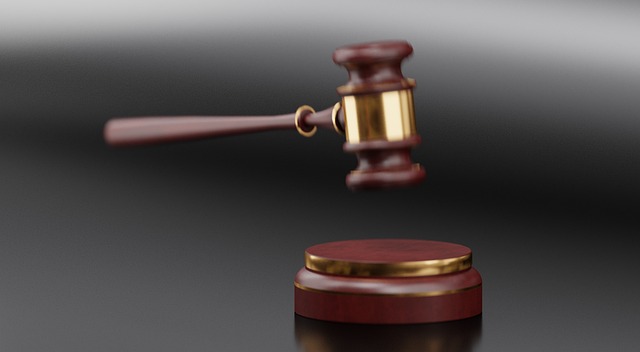White-collar crime investigations demand meticulous strategies, focusing on financial records, digital evidence, and witness testimonies. For DUI charges, effective defense tactics challenge evidence admissibility, question police conduct, leverage procedural errors, and mitigate factors. Companies facing DUI charges require robust strategic defenses, including internal audits, policy revisions, employee training, and specialized legal counsel. Post-trial considerations include appeals, motions to acquit, leveraging successful case tracks for fair trials and favorable outcomes.
Corporate Crime Investigations delve into complex cases of misconduct within organizations. Understanding these investigations, from legal frameworks to evidence gathering, is crucial for developing effective criminal defense strategies for DUI charges. This article explores key aspects including the legal framework governing DUI charges, best practices for evidence collection in corporate scrutiny, strategic defense approaches, and post-trial considerations. By mastering these tactics, individuals can navigate challenging DUI cases with confidence, ensuring a robust defense.
- Understanding Corporate Crime Investigations
- Legal Framework for DUI Charges
- Gathering Evidence in Corporate Scrutiny
- Strategic Defense Approaches for DUI
- Post-Trial Considerations and Appeals
Understanding Corporate Crime Investigations

Corporate Crime Investigations delve into complex matters involving white-collar offenses, requiring a meticulous approach to uncover and prove illicit activities. These investigations span all stages of the investigative and enforcement process, from initial suspicion to legal proceedings. Effective criminal defense strategies for high-stakes cases are pivotal here, as they can significantly impact outcomes. Understanding the nuances of corporate misdeeds demands a specialized approach, focusing on financial records, digital evidence, and witness testimonies.
By employing robust defensive tactics, individuals and organizations can navigate these challenging scenarios. This involves meticulous record-keeping, robust internal controls, and transparent communication to establish a robust defense against charges like DUI (Drunk Driving Under Influence), which may arise in such investigations. The key lies in proactive measures that prevent potential violations and equip stakeholders with a comprehensive understanding of their rights and obligations throughout the process.
Legal Framework for DUI Charges

In many jurisdictions, the legal framework for DUI (Driving Under the Influence) charges is designed to ensure fair and consistent application of the law. This involves a series of strict procedures from arrest to sentencing, aiming to protect both individual rights and public safety. Effective criminal defense strategies for DUI charges often revolve around challenging the admissibility of evidence, such as breath or blood test results, and questioning the legality of police actions leading up to the arrest.
Understanding the respective business of DUI laws is crucial. These laws vary by state but generally include penalties like fines, license suspension, and even jail time. While some cases may be resolved through plea bargains, those proceeding to jury trials demand robust general criminal defense strategies. Skilled legal representatives can exploit procedural errors, challenge the reliability of testing methods, and present mitigating factors to achieve favorable outcomes for their clients.
Gathering Evidence in Corporate Scrutiny

In corporate scrutiny, gathering evidence is a meticulous process that demands a nuanced approach. Investigations into white-collar and economic crimes often require sifting through complex financial records, digital data trails, and internal communications. It’s crucial to employ effective criminal defense strategies for DUI charges while navigating these labyrinthine aspects of corporate crime. Across the country, law enforcement agencies have been enhancing their techniques, leveraging advanced technology and unprecedented track records to unearth subtle clues that can make or break a case.
By utilizing sophisticated data analytics and expert witnesses, investigators can now pinpoint anomalies in financial statements and uncover hidden transactions, revealing malfeasance that may have otherwise gone unnoticed. This thorough process ensures that any evidence collected is not just relevant but irrefutable, thereby strengthening the prosecution’s case. Moreover, understanding the legal nuances specific to corporate investigations is paramount, as it helps build a robust defense strategy while respecting the integrity of the investigation.
Strategic Defense Approaches for DUI

In the face of mounting pressure from regulatory bodies and a heightened public awareness of corporate misconduct, developing robust strategic defenses is paramount for companies navigating complex legal landscapes, especially in cases of DUI (Drunk Driving Under Influence). Effective criminal defense strategies for DUI charges involve a multi-faceted approach tailored to mitigate risks at every step. These include comprehensive internal audits and policy revisions to ensure compliance with relevant laws and regulations, thereby avoiding indictment. By implementing stringent training programs and educational initiatives, companies can foster a culture of responsibility among employees, reducing the likelihood of such infractions.
Moreover, engaging expert legal counsel who specialize in DUI defense is instrumental. These attorneys can guide clients through all stages of the investigative and enforcement process, providing strategic advice to minimize damage. Through meticulous documentation, evidence preservation, and aggressive yet compliant advocacy, they protect their clients’ interests while ensuring full transparency and accountability. This proactive approach not only safeguards against legal repercussions but also enhances a company’s reputation by demonstrating its commitment to ethical practices.
Post-Trial Considerations and Appeals

After a trial, regardless of the outcome, there are several post-trial considerations for both the accused and the prosecuting entity. For individuals facing DUI charges, this period can be pivotal in shaping their future, especially when employing effective criminal defense strategies. Legal teams often explore avenues for appeals or motions to acquit, scrutinizing procedural errors or inconsistencies in evidence presentation.
A key aspect in securing winning challenging defense verdicts involves leveraging an unprecedented track record of successful cases within the respective business. Skilled attorneys can navigate complex legal landscapes, ensuring their clients receive a fair trial and exploring every possibility for a favorable outcome, whether it’s through settlement negotiations or robust courtroom advocacy.
Corporate crime investigations demand a nuanced approach, balancing legal complexity with strategic defense mechanisms. Understanding the legal framework surrounding DUI charges is paramount, as effective criminal defense strategies can significantly impact outcomes. By employing meticulous evidence gathering techniques and exploring strategic defenses, organizations can navigate these scrutinies successfully. Post-trial considerations and appeals further underscore the need for robust legal counsel to ensure just resolutions and protect reputational integrity. Embracing these comprehensive approaches equips businesses with powerful tools to defend against DUI accusations and foster a culture of compliance.






